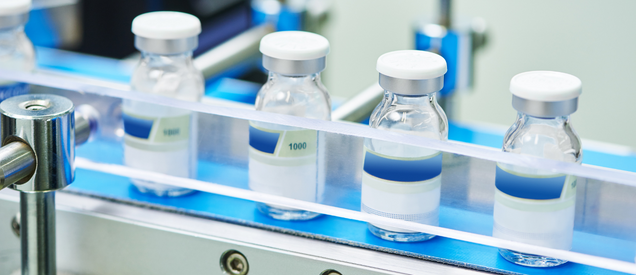
Enterprise Resource Planning (ERP) is a software solution that is increasingly used by businesses to manage their resources and operations. The implementation of ERP has helped businesses in various industries to streamline their processes, improve their efficiency, and ultimately enhance their profitability. In the pharmaceutical manufacturing industry, ERP has become an essential tool to manage complex operations, maintain regulatory compliance, and ensure the safety and quality of products. In this blog, we will discuss the benefits of ERP for pharmaceutical manufacturing facilities and the key considerations for implementing ERP in this industry.
Benefits of ERP for Pharmaceutical Manufacturing Facilities
- Process Optimization
Pharmaceutical manufacturing involves a complex process that includes several steps, such as research and development, clinical trials, production, quality control, and distribution. ERP can help to optimize these processes by providing a centralized platform to manage all the data and activities associated with them. This ensures that there is greater visibility and control over the entire process, leading to better decision-making and increased efficiency.
- Regulatory Compliance
Pharmaceutical manufacturing is subject to stringent regulatory requirements, and compliance is critical to avoid legal and financial repercussions. ERP can help pharmaceutical manufacturers to maintain compliance by providing tools for tracking and reporting on regulatory requirements. This ensures that the company is always up-to-date with regulations and can respond quickly to any changes or updates.
- Quality Management
Pharmaceutical manufacturing is focused on producing products that are safe and effective for patients. Quality management is critical to ensure that the products meet the required standards. ERP can help to manage quality by providing tools for tracking and managing quality control activities, such as inspections, testing, and certifications. This ensures that products are manufactured to the highest quality standards, reducing the risk of defects and recalls.
- Inventory Management
Pharmaceutical manufacturing involves managing a large inventory of raw materials, intermediates, and finished products. ERP can help to manage this inventory by providing tools for tracking inventory levels, monitoring expiration dates, and managing replenishment. This ensures that the company has the right inventory levels to meet production demands while minimizing waste and reducing costs.
Key Considerations for Implementing ERP in Pharmaceutical Manufacturing Facilities
- Customization
Pharmaceutical manufacturing facilities have unique requirements that may not be fully addressed by off-the-shelf ERP solutions. Customization may be necessary to ensure that the ERP system meets the specific needs of the facility. This can be a complex process that requires the involvement of IT experts and stakeholders from different departments.
- Data Security
Pharmaceutical manufacturing involves handling sensitive information, including trade secrets, intellectual property, and patient data. Data security is critical to protect this information from theft or unauthorized access. ERP systems must have robust security measures in place, such as encryption, access controls, and backup and recovery processes, to ensure that the data is protected.
- User Training
ERP systems are complex and require specialized training to use effectively. User training is critical to ensure that employees can use the system correctly and efficiently. This requires a comprehensive training program that covers all aspects of the ERP system, including its features, functionalities, and best practices.
- Change Management
Implementing an ERP system can be a significant change for an organization. Change management is critical to ensure that the transition is smooth and that employees are prepared for the change. This requires effective communication, training, and support to help employees adapt to the new system and processes.
ERP has become an essential tool for pharmaceutical manufacturing facilities to manage their resources, optimize their processes, maintain regulatory compliance, and ensure product quality. The benefits of ERP include process optimization, regulatory compliance, quality management, and inventory management. However, implementing ERP in pharmaceutical manufacturing requires careful consideration of factors such as customization, data security, user training, and change management. By addressing these factors, pharmaceutical manufacturing facilities can successfully implement an ERP system.
Topics: packaging, APS benefits, manufacturing scheduling and planning software




















LEAVE A COMMENT